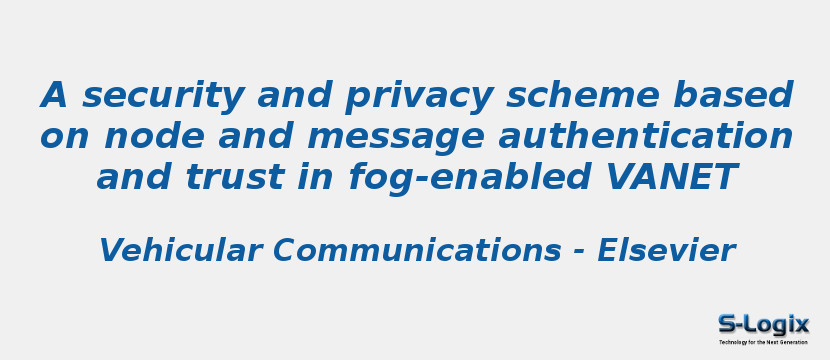Research Area: Vehicular Ad Hoc Networks
Security and privacy are the most important concerns related to vehicular ad hoc network (VANET), as it is an open-access and self-organized network. The presence of selfish nodes distributed in the network are taken into account as an important challenge and as a security threat in VANET. A selfish node is a legitimate vehicle node which tries to achieve the most benefit from the network by broadcasting wrong information. An efficient and proper security model can be useful to tackle advances from attackers, as well as selfish nodes. In this study, a privacy-preserving node and message authentication scheme, along with a trust model was developed. The proposed node authentication ensures the legitimacy of the vehicle nodes, whereas the message authentication was developed to ensure the messages integrity. To deal with selfish nodes, an experience-based trust model was also designed. Additionally, to fulfill the privacy-preserving aspect, the mapping of each vehicle was performed using a different pseudo-identity. In this paper, fog nodes instead of road-side units (RSUs), were distributed along the roadside. This was mainly because of the fact that fog computing reduces latency, and results in increased throughput. Security analysis indicated that our scheme met the VANETs security requirements. In addition, the performance analysis showed that the proposed scheme had a lower communication and computation overhead, compared to the other related works. Monte-Carlo simulation results were applied to estimate the false-positive rates (FPR), which also proved the validity of the proposed security scheme.
Keywords:
Author(s) Name: Seyed Ahmad Soleymani, Shidrokh Goudarzi,Mohammad Hossein Anisi,Mahdi Zareei,Mahdi Zareei,Abdul Hanan Abdullah,Nazri Kama
Journal name: Vehicular Communications
Conferrence name:
Publisher name: ELSEVIER
DOI: 10.1016/j.vehcom.2021.100335
Volume Information: Volume 29, June 2021, 100335
